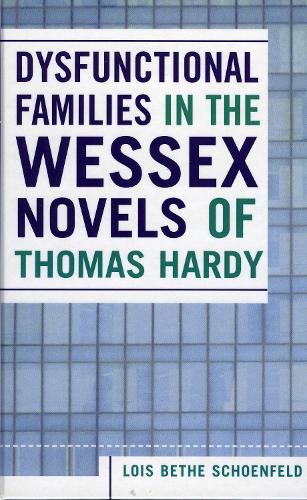
Dysfunctional Families in the Wessex Novels of Thomas Hardy
(Paperback)
Publishing Details
Dysfunctional Families in the Wessex Novels of Thomas Hardy
By (Author) Lois Bethe Schoenfeld
University Press of America
University Press of America
21st April 2005
United States
Classifications
General
Non Fiction
Literature: history and criticism
823.8
Physical Properties
Paperback
300
Width 142mm, Height 215mm, Spine 23mm
386g
Description
Dysfunctional Families in the Wessex Novels of Thomas Hardy examines the diverse portrayals of dysfunctional families in Thomas Hardy's novels, which are used as a frame of reference for studying socio-historical changes in Victorian England. This work addresses why, in what ways, and to what end Hardy created so many dysfunctional families in the Wessex novels, which focused on the rural artisan stratum of the working class, and how the specific historical and social changes of the times affected them. The research in this book explores how the family, or lack of one, is used as a vehicle for commenting on the changing economic and social situation of people in Victorian England.
Investigation reveals many absences in Hardy's novelsabsences of functioning nuclear families, successful marriages, the birth of children, the establishment of homes, successful business ventures, and traditional gender roles. Something is inherently wrong with Wessex society, and Hardy offers us an imaginative glimpse into possible future consequences, or more specifically, an unstable socio-economic foundation.
Hardy focuses on dysfunctional families, intermingling narrative, character, action, and imagery in an exploration of their dysfunctionality, holding up a critical mirror to nineteenth-century English society, while providing a critical comment on his own moment in history.
Author Bio
Lois Bethe Schoenfeld is an English Language Lecturer at The Western Galilee College under the auspices of Bar-Ilan University. Dr. Schoenfeld holds a Ph.D. in English Literature and General History from the Anglia Polytechnic University.
